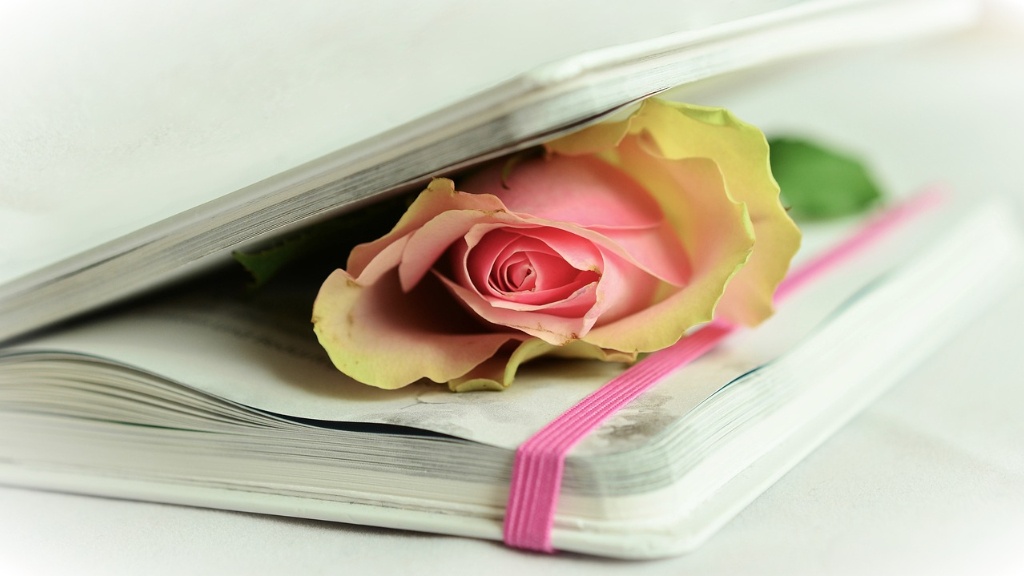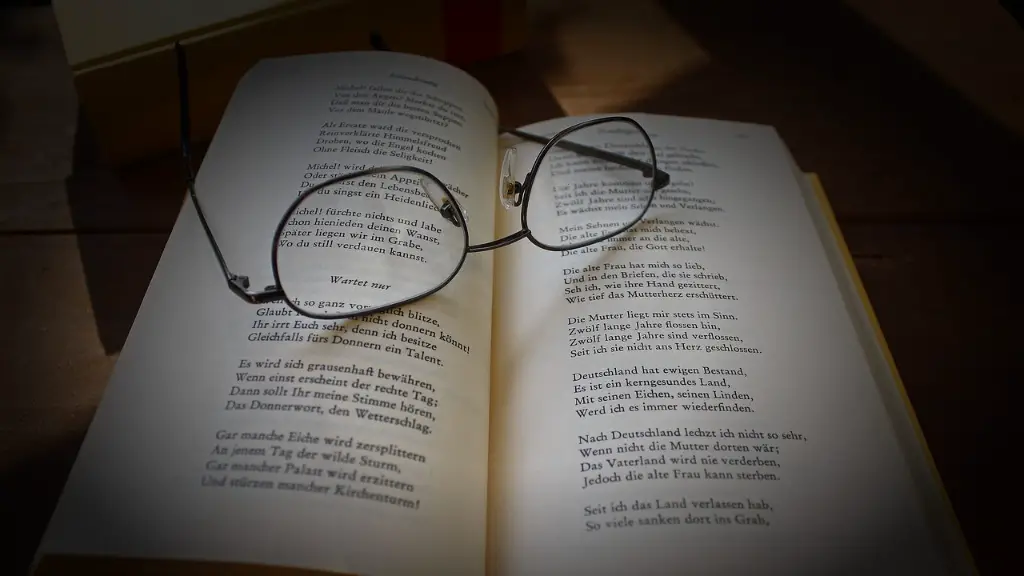Persona in poetry is the perspective or viewpoint a poet adopts to express her thoughts, feelings, and emotions in a poem. A poet’s persona is typically revealed or assumed through a first-person voice or perspective, creating a direct connection between the writer and their subject matter. It’s not always easy to decipher a poet’s persona, as numerous factors can contribute to a poem’s particular tone or persona. For example, a poet may choose to write from a particular historical or political standpoint, or exaggerate aspects of their own personal experience to create a more vivid or explicit impression on the reader. Persona in poetry can also help establish an emotional bond between the poet and audience, creating an implicit understanding of one another’s perspectives and backgrounds.
Most of the time, personae in poetry reflect the personal views and feelings of the poet, but they can also reflect a cultural or historical context. When a reader is exposed to a specific persona, they become aware of the various influences on the poet’s writing, allowing them to begin to understand the poem on a deeper level. Personae in poetry can be used to bring attention to a certain issue, or to provide a unique perspective to a certain concept. They can also cause readers to question certain beliefs or ideals, and to think more deeply about them.
Personae in poetry can dramatically alter the tone of a work. Instead of simply writing from a personal perspective, a poet may choose to adopt a persona from a specific time period or location, allowing them to explore different elements of a particular topic. This technique can be especially effective for writers who are creating a story about a subject matter that is unfamiliar to their readers. The poet can create an atmosphere and setting that the reader can relate to, allowing them to gain a more comprehensive understanding of the subject matter.
The use of persona in poetry can also serve as a way for the poet to express their unique take on a certain issue or idea. By giving their poem a unique voice, the poet can give their words added power and meaning. The persona can also create a sense of intimacy between the poet and their reader, as readers often feel more connected to a poem when it is expressed from an expressive and personal perspective.
Personae in poetry can be used to evoke strong emotional responses from readers, whether it is joy, sorrow, anger, or even hope. For example, a poet might choose to adopt a persona from a different culture or period of history, allowing the reader to explore and better understand the cultural context of the poem. Or, a poet can choose to use a persona to take on a certain viewpoint, such as expressing a critical opinion on a political or social issue. By pushing the boundaries of traditional forms of poetry and creating unique personae, poets can engage and move their readers in powerful, unexpected ways.
Gender and Persona
Persona in poetry can often be used to express gender roles and expectations. By adopting a masculine or feminine persona, a poet can explore how their gender influences their interpretation of the world around them. The poet may also use their persona to challenge social norms and traditional gender roles by creating new ways of viewing the world. Additionally, persona in poetry can be used to explore the constructs of gender and power, allowing readers to think more deeply about the dynamics of gender and performance.
By using persona in poetry, a poet can express themselves in ways that may not necessarily be captured by other forms of artistic expression. This is especially true for gender, as poets have the ability to communicate their own gender-related experiences, perspectives, and opinions without feeling bound by traditional expectations. By adopting a gender-neutral persona, poets can explore their own identities and societies overall attitudes towards gender roles.
Identity in Persona
Persona in poetry can be used to explore the idea of identity, especially in terms of race, ethnicity, and culture. When approaching identity through the use of persona in poetry, a poet can articulate the unique experiences and perspectives associated with their background, creating a powerful sense of belonging and understanding. This type of expression can have a profound impact on readers, particularly those who may not have been exposed to the same cultures or experiences.
In addition to expressing personal identity through a poetic persona, writers can also use their persona to open up a dialogue about different cultural concepts and values. By understanding the cultural lens of a poem, readers can gain insight into different cultural perspectives, allowing them to empathize with the writer and their background.
Persona in poetry is an effective tool for writers to explore different aspects of their unique identity. By adopting a persona, the poet can offer a unique—and often unexpected—perspective on racial, ethnic, and cultural identity, allowing readers to see these concepts in new and exciting ways.
Exploring Foreign Worlds
Persona in poetry can also be used to explore aspects of foreign cultures or worlds. By adopting a persona from a different time or place, a poet can open up their reader to unfamiliar customs and practices, allowing them to gain valuable insight into the lives of others. In this way, the poetic persona can act as a bridge between the familiar and the unknown, creating a greater understanding between cultures and worlds.
This type of exploration has allowed poets to create emotionally charged works of literature, as readers become attuned to the cultural points of view of particular personae and times. By creating an intimate connection with a foreign perspective, poets can provide their readers with powerful insights about different stakes, histories, and relationships.
Persona in poetry can also be used to explore philosophical or spiritual concepts. By assuming a persona from a certain belief or practice, the poet can explore topics such as faith, religion, and mysticism in compelling and thought-provoking ways. This technique allows poets to express their own spiritual beliefs and ideologies, while developing a common understanding of different concepts with their readers.
Persona and Perspective
Persona in poetry allows a poet to take on different perspectives or ideologies. By assuming a certain viewpoint or position, the poet can provide their reader with a new understanding of an issue or practice. This type of exploration allows poets to create sensitive and nuanced works about difficult topics, such as racism, sexism, and LGBTQ+ rights. Additionally, by assuming a different persona, the poet can create works from a historical or cultural context, allowing readers to become more aware of different viewpoints and interpretations.
Persona in poetry can also be used to challenge popular opinions or beliefs. Rather than simply subscribing to established assumptions, the poet can express their own opinion on a given subject matter, allowing the reader to explore the different aspects of a controversial topic. This technique can be especially powerful when writing about social justice or political issues, as poets can either validate or challenge the status quo.
The use of persona in poetry is an invaluable tool for poets who are seeking to express their feelings, emotions, and beliefs. By assuming a certain perspective or understanding, the poet can create powerful works that engage and educate their readers in meaningful ways.




